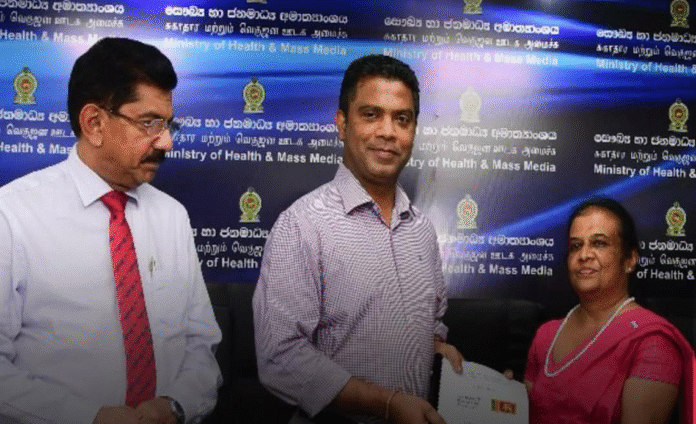A Renewed National Commitment to Health and Development
The convening of the National Council on Non-Communicable Diseases (NCD Council) under the leadership of Health and Media Minister Dr. Nalintha Jayatissa marks a critical milestone in Sri Lanka’s ongoing battle against one of the most serious health challenges of our time. The meeting, held at the Ministry of Health, brought together senior health administrators, medical experts, and representatives from the World Health Organization (WHO), UNICEF, and various government and non-governmental organizations to evaluate the country’s progress and outline future strategies for NCD prevention and control.
During the session, a special evaluation report on cancer control in Sri Lanka, compiled by experts from the WHO, was officially presented to the Minister. The report provides a comprehensive review of national efforts in cancer prevention, diagnosis, and treatment, shedding light on areas that require strategic intervention to reduce mortality and strengthen health systems.
The NCD Council serves as a high-level scientific and policy coordination platform, bringing together multiple ministries and experts to guide national decision-making on non-communicable diseases such as heart disease, stroke, diabetes, hypertension, cancer, and mental health disorders. It functions under the Ministry of Health but works across sectors to ensure that health policy is integrated into national development goals.
In his remarks, Minister Jayatissa emphasized that achieving the United Nations Sustainable Development Goals (SDGs) remains one of the Ministry’s top priorities. However, the growing burden of NCDs poses a serious challenge to this objective. He reiterated the government’s determination to combat this threat through systematic reforms, data-driven policymaking, and community-level engagement. The Minister also underlined that the government, in collaboration with the entire national health workforce, is exerting substantial effort to curb the rise of lifestyle-related diseases.
Highlighting the government’s focus on primary healthcare development, Dr. Jayatissa identified it as a decisive component of the current national policy direction. He pointed to the “Arogya Suwatha” health center project, which targets specific population groups with essential health services aimed at early detection and management of NCDs. These centers, he said, will play a transformative role in enabling communities to access preventive care and improve overall well-being.
The meeting also reviewed the actions undertaken over the past year in controlling NCDs and examined the next phase of strategic implementation. Among the topics discussed were the national response mechanisms for cardiovascular diseases, cancer screening programs, diabetes management, and mental health initiatives. The council placed strong emphasis on short, medium, and long-term planning, recommending that these frameworks be urgently developed and executed through inter-ministerial collaboration.
Beyond health outcomes, the economic implications of NCDs were also acknowledged. Non-communicable diseases account for nearly 75% of all deaths in Sri Lanka, leading to substantial loss of productivity and income. The World Bank estimates that the economic cost of NCDs globally could reach trillions of dollars annually if unchecked, an alarming trend mirrored in developing economies. For Sri Lanka, reducing the NCD burden is therefore not only a health imperative but also a macroeconomic necessity. Every rupee invested in prevention, through awareness, early detection, and lifestyle modification, can yield significant savings in treatment costs and preserve the country’s workforce potential.
Experts present at the session reaffirmed that multi-sectoral coordination is key. Education, transport, food regulation, and media all have roles to play in building healthier lifestyles and addressing the behavioral risk factors that drive NCDs, poor diet, lack of physical activity, tobacco use, and alcohol consumption. The NCD Council’s integrated approach, combining scientific insight with policy execution, offers a powerful model for long-term resilience in public health.
As Sri Lanka faces the twin challenges of economic recovery and public health management, the renewed energy and coordination displayed through the NCD Council provide a timely reminder of the nation’s commitment to sustainable, inclusive development. By prioritizing health at the policy level and strengthening the foundations of preventive care, Sri Lanka moves one step closer to achieving the vision of a healthier, more productive society, where every citizen’s well-being contributes to national progress.
This effort is not merely about disease control; it is about shaping a future in which health becomes a cornerstone of human capital development, supporting both individual prosperity and the broader goals of economic growth and social stability.




